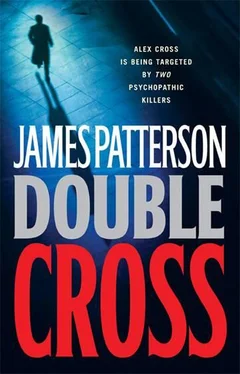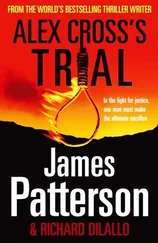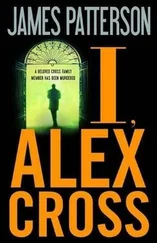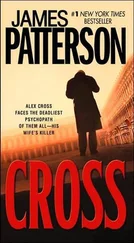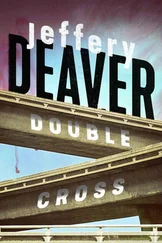“I did some research,” I said on the tape. “You were Twenty-fourth Infantry Division, right? This was just before you all started toward Basra.”
“How did you know that?”
“It’s part of history. You were part of history. The information isn’t very hard to find, Anthony. Is there anything that happened there that you don’t want to talk about? To me… or anyone else?”
“Maybe there is. Probably some stuff I don’t want to get into. I don’t blame anyone for what happened, though.”
His speech was faster now, and clipped, as though he wanted to get past this part.
“Blame anyone for what?” I asked.
“For any of the shit that happened. You know, I enlisted on my own. I wanted to go.”
I waited, but there was no elaboration.
“That’s it for now,” Anthony said then. “A little too much, too soon. Next time. I need to ease into this, Doc. Sorry about that.”
I clicked off the tape recorder and sat back in my chair, thinking. I knew he was losing ground lately, even with the subsidized housing he had. Another month or two of unemployment could be a real problem for him. People like Anthony Demao slipped through the cracks all the time.
I rubbed my eyes hard and poured myself another cup of coffee. There was a lot to think about, maybe too much. I had one more client coming-and then later that afternoon, a meeting at police headquarters.
A big one.
IT WAS TIME to trade on my reputation and laurels in a way I’d never done before. I knew that Chief of Police Terrence Hoover would take a meeting if I asked, especially since I had cleared it through the chief of detectives first. I was less sure if Hoover would agree to the ridiculousness I was about to propose to him. We’d have to see about that.
“Alex, come in. Sit down,” he said as I stood like a moke in his doorway. A college-wrestling photo on the wall behind him showed the younger Hoover at the University of Maryland and explained where that crushing handshake of his came from. “I haven’t heard from you in a long time.”
“I appreciate you seeing me, Chief. Needless to say, there’s something on my mind.”
Hoover smiled. “So we’re skipping the idle chitchat, huh? Okay. What are you after, Alex?”
“Nothing too complicated. Just a job.”
Hoover blinked and ducked his double chin. “A job? Well, shit, Alex, that is a surprise. I thought you were coming to ask me for something. Instead, you’re here to offer me something.”
That was a relief to hear. “Thanks for saying that, Chief. I guess I’ll keep offering, then.”
“Please do. You’re on a roll. I definitely want to hear the rest of the pitch.”
Here it went.
“Some cops talk about wanting to make a difference. I guess I would say that I believe I can do more good than harm, and that’s a reasonable objective. I want to come back on the force but in a limited capacity. I’d like to work the Major Case Squad, but outside of the regular rotation. Specific assignments only. I’ve been consulting on the Kennedy Center and Connecticut Avenue murder cases already, and if any of this is agreeable to you, it would be a seamless reentry for me. I know the team, and I think I could be an asset.”
Hoover laughed out loud. “I’ve heard some pretty good speeches in here, but that one goes on the short list.” He pointed at me. “You know you can afford to be this cocky ’cause you know damn well I’m gonna say yes.”
“Just figured I’d lay it out there.”
He stood up, and so did I. “Well, the answer is yes. Let me have Arlene call recruiting, and I’ll speak to the superintendent myself. We’ll work something out.”
Superintendent of Detectives Ramon Davies, I knew, would be my boss on the Major Case Squad. Davies was above Thor Richter, and if I could get this investigation taken out of Richter’s supervision, we’d be able to move a lot more freely on it.
“I think I just cashed in every chit I’ve got,” I said, shaking Terrence Hoover’s hand again.
“It’ll be good to have you on this one,” he said. “I hear they’re calling him the Audience Killer.”
Since I had come up with the name, I was tempted to smile but didn’t. “Audience Killer, huh? I guess that sounds about right.”
I HOOKED UP with Bree and Sampson back at the Daly Building that evening. I’d already been given an office there, and it was doubling as a nerve center for the Audience Killer case. It felt a little like a college dorm room, with the three of us crammed in there together.
I’d never worked this way before, quite so cooperatively. There was no tension about our roles, though, no debating how the work would get done. There was just the case. And, of course, the proximity of Bree’s long legs and other parts, her fetching looks, and so on and so forth.
She was searching through the drawers for something when I came in. Sampson stood behind her, reading a file on the desk over her shoulder.
“Check this out.” He held up a mug shot. “Meet Ashton Cooley.”
“What’s his deal?” I asked, glancing at the file upside down from where I stood.
“Ashton is a stage name,” Sampson said. “He tried out for, but didn’t get , Matthew Jay Walker’s part in that sci-fi play at the Kennedy. The producers went with the big Hollywood name over the local talent. Typical, right?”
“That could piss you right the hell off,” Bree contributed. “Don’t you think so? I do.”
I took the picture and looked at it. The actor was in his twenties, white, dark-haired, kind of pouty-looking.
“I’m guessing a lot of actors would have wanted that part. Play could’ve been headed for Broadway,” I said.
“Sure,” Sampson said. “But how many of them were suspects in a previous homicide?”
SAMPSON WAS WORKING another murder case in the projects, so Bree and I went to see the actor. We cut over to Massachusetts Avenue, then up Sixteenth Street to Cooley’s Mount Pleasant address. The neighborhood is still remembered for the 1991 riots, sparked by charges of anti-Hispanic racism among DC’s black cops.
Cooley, I read on the way over, had been-and technically still was-the primary suspect in the shooting death of a girlfriend, Amanda Diaz, two years earlier. The DA had been forced to give it up for lack of evidence, but apparently it had been a close call.
Cooley still lived in the same apartment where the shooting took place. Not the sentimental type, I guess.
The apartment was on the second floor, above a Central American grocery, in a building not yet reached by any neighborhood-improvement effort. Bree and I took the stairs and arrived at a dank, tiled hallway with one translucent window at the far end.
Cooley’s was the middle of three metal-faced apartment doors. We knocked and waited.
“Yeah, who is it? I’m busy.”
“Mr. Cooley, I’m Detective Cross, here with Detective Stone from the MPD.”
To my surprise, the door flew open, and he ushered us inside. “Get in, get in.”
Bree scratched her ear and gave me a look.
“Do you have some particular concern about the police being seen at your door?” she asked.
“You mean because that always works out so well?” he said. “Last I checked, cops at the front door is not good news.”
We walked into a narrow hallway with two closed rooms along the left side and a row of framed headshots-maybe Cooley’s actor friends-hanging on the other chipped and peeling wall. I wondered if one of them was the dead girl-friend.
“Could we sit down?” Bree asked.
He didn’t move. “Not really. What do you want? Like I said, I’m busy.”
Читать дальше
